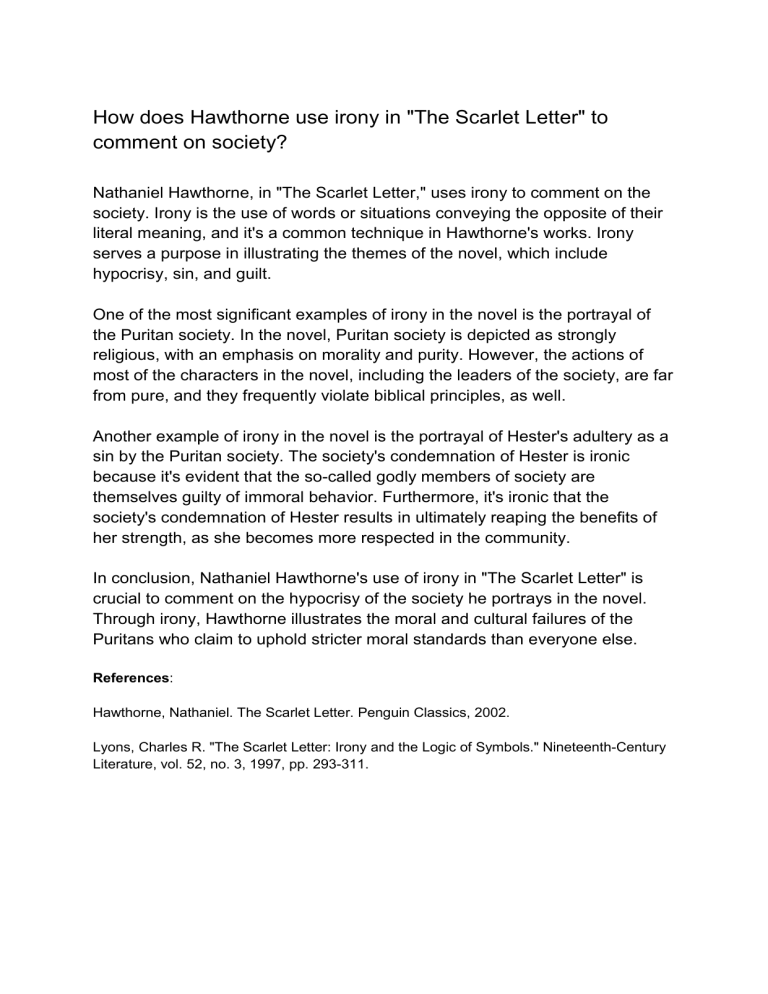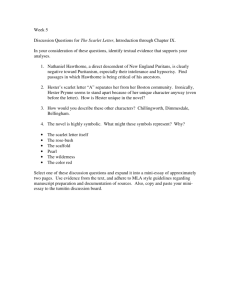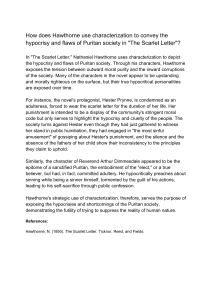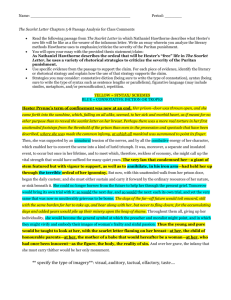How does Hawthorne use irony in The Scarlet Letter to comment on society
advertisement

How does Hawthorne use irony in "The Scarlet Letter" to comment on society? Nathaniel Hawthorne, in "The Scarlet Letter," uses irony to comment on the society. Irony is the use of words or situations conveying the opposite of their literal meaning, and it's a common technique in Hawthorne's works. Irony serves a purpose in illustrating the themes of the novel, which include hypocrisy, sin, and guilt. One of the most significant examples of irony in the novel is the portrayal of the Puritan society. In the novel, Puritan society is depicted as strongly religious, with an emphasis on morality and purity. However, the actions of most of the characters in the novel, including the leaders of the society, are far from pure, and they frequently violate biblical principles, as well. Another example of irony in the novel is the portrayal of Hester's adultery as a sin by the Puritan society. The society's condemnation of Hester is ironic because it's evident that the so-called godly members of society are themselves guilty of immoral behavior. Furthermore, it's ironic that the society's condemnation of Hester results in ultimately reaping the benefits of her strength, as she becomes more respected in the community. In conclusion, Nathaniel Hawthorne's use of irony in "The Scarlet Letter" is crucial to comment on the hypocrisy of the society he portrays in the novel. Through irony, Hawthorne illustrates the moral and cultural failures of the Puritans who claim to uphold stricter moral standards than everyone else. References: Hawthorne, Nathaniel. The Scarlet Letter. Penguin Classics, 2002. Lyons, Charles R. "The Scarlet Letter: Irony and the Logic of Symbols." Nineteenth-Century Literature, vol. 52, no. 3, 1997, pp. 293-311.



